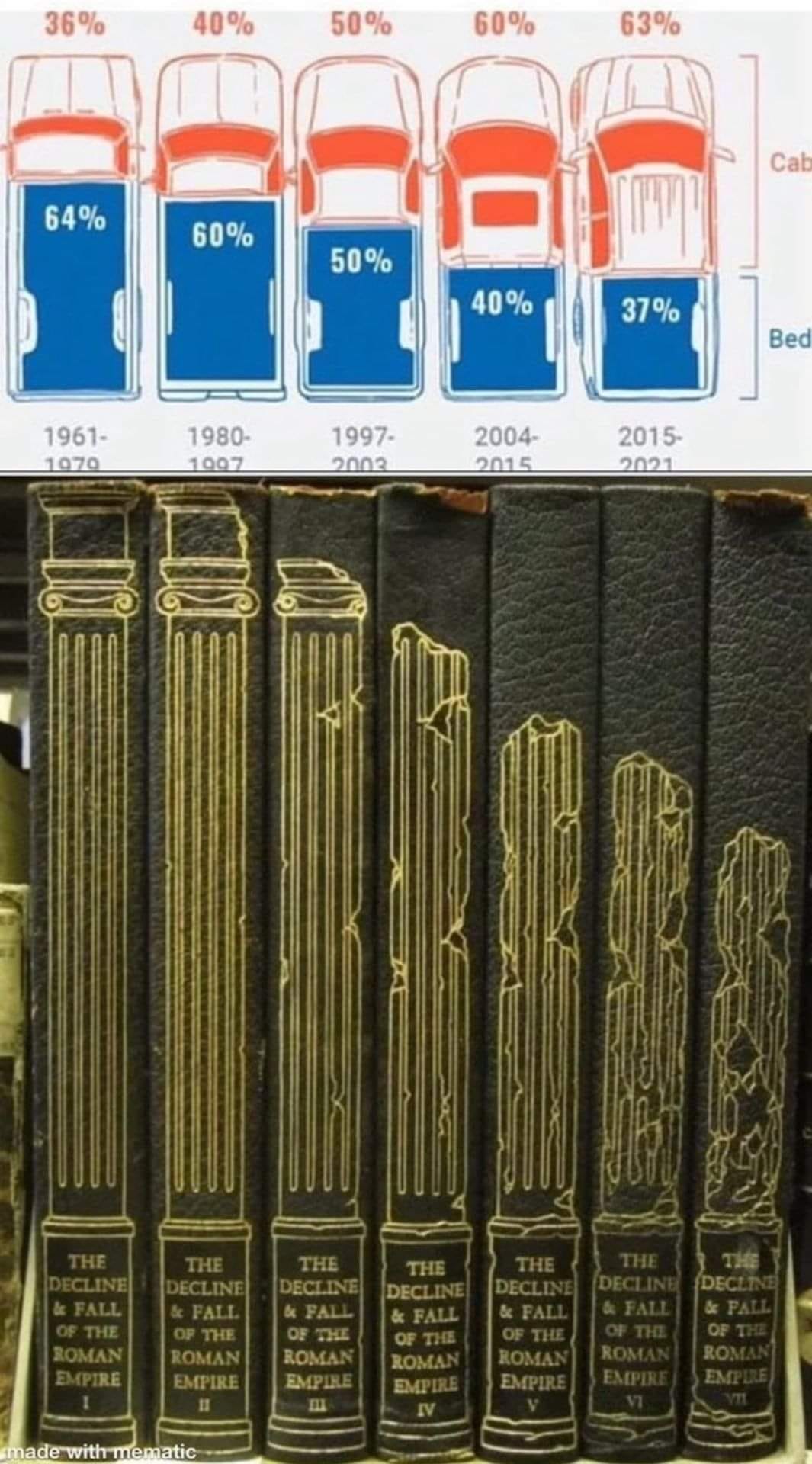view the rest of the comments
Humor
"Laugh-a-Palooza: Unleash Your Inner Chuckle!"
Rules
Read Full Rules Here!
Rule 1: Keep it light-hearted. This community is dedicated to humor and laughter, so let’s keep the tone light and positive.
Rule 2: Respectful Engagement. Keep it civil!
Rule 3: No spamming!
Rule 4: No explicit or NSFW content.
Rule 5: Stay on topic. Keep your posts relevant to humor-related topics.
Rule 6: Moderators Discretion. The moderators retain the right to remove any content, ban users/bots if deemed necessary.
Please report any violation of rules!
Warning: Strict compliance with all the rules is imperative. Failure to read and adhere to them will not be tolerated. Violations may result in immediate removal of your content and a permanent ban from the community.
We retain the discretion to modify the rules as we deem necessary.

What sucks is you can’t even buy a truck like the second from the left anymore. I mean, you can buy a used one from a few decades ago, but nobody makes small utility trucks like the old Rangers. The new Ranger is basically just an old F150 (maybe even F250).
The Maverick seems like a reasonable size to me, but by the time I need to replace another car, I'm sure its size will have inflated beyond what I want.
Reasonable footprint, but still a very short bed and 4 door cab. Don't get me wrong, I like the Maverick and expect to buy a 5 year old model in 5 years, but that's because I'll probably still be neck deep in home projects while still trying to commute. It does have great features in the bed and is known to have perfectly acceptable capability hauling full 4x8 sheets with the tailgate tilt. But most of the market is locked away in fullsize crew cabs with 6ft beds at best. 8ft beds typically require utility trims, so you can't get a smaller-footprint nice pickup with full capacity.
I've had a 99 ranger regular cab 7ft bed for about 2 months. It works great for me, but I can barely get a nicer home reno/commuter vehicle. I can go 10 years newer, but not much nicer comparatively speaking from 2024.
I have the same problem with phones.
I assume there's some kind of growth formula I'm supposed to have learned about and started taking, but I don't go to the right parties. /sarcasm
They exist but the US seems intent on keeping out.
I know, right?! I can go across the border and buy one in Mexico, but I can’t buy one here. It’s infuriating!
You can't buy one because it has never existed, no truck ever had a 40/60 cab to bed ratio except for custom jobs made from using the front of a van with a truck bed.
Cab over engine trucks have existed for a very long time and have models that would absolutely have ~60% of their foot print be bed
CoE pickups haven't been a thing outside of commercial vehicles for decades, hell, the VW vanagon might have been the last one in the 80s for the North American market...
Look at the original post, none of them are CoE.
I responded to your comment that said they have never been a thing. never.
Which was a reply to someone saying they want something like the second one from the left, which is an engine forward truck with 60% bed, which has never existed.
A Jeep FC-170 was 60% bed, but that's like saying "Just get a Hino and have someone make a bed for it and daily drive it".
The only thing that's higher than 60% and that could still be considered a non commercial offering is a VW Bus Transporter at 61% bed since the nose is flatter (engine at the back) but it still doesn't match "the second from the left" as asked by that other person.
I don't know where they found the 64% bed truck and outside of commercial offerings (so it doesn't have to meet regular safety standards) there's no way to get a modern version of a truck with 60% bed unless it has a ridiculously long bed.
I never contradicted any of this, I don't know of a modern one. You said they never existed... They did.
They didn't, no engine forward truck ever had a 40/60 ratio cab to bed.
I love my 09 ranger, one of the last years before they scrapped it and went with the Goliath model.
Honestly don't see the appeal to the huge trucks unless they're for work, but it's not surprising that automakers in North America don't really care to offer what consumers actually want to drive.